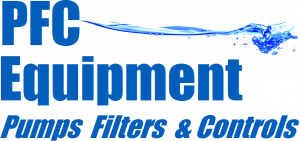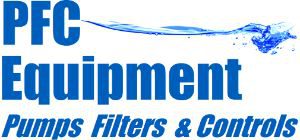Which Industrial Pump Does Your Business Need?
If you’re in the construction, mining, or industrial chemical treatment and manufacturing industry, you need a dependable way to move liquids, gases, and slurries. Industrial pumps ensure that your workplace remains safe and clean while also moving your product in bulk.
Of course, you need the right pump for your company’s liquid handling needs. After all, you handle a variety of fluids and gases in all kinds of viscosities and temperatures. And because some of the liquids you transfer are aggressive, flammable, or dangerous, it’s critical that you use dependable, sturdy pumps that can withstand time and pressure.
Read through our list of the most commonly used industrial pumps so you can find the best pump for your manufacturing needs.
Two Basic Classifications
Industrial pumps receive one of two classifications, both of which move liquids or gases from one location to another. The method of displacement is different for each. The first type is a centrifugal pump. Centrifugal pumps use a piece of machinery that rotates; they then convert the rotational kinetic energy into hydrodynamic energy, which forces the liquid from one area to another.
Centrifugal pumps can handle most general industrial fluid transfer needs, and because they are so versatile, your local industrial pump specialist will be able to provide a pump of the right size and configuration.
The second pump classification is a positive displacement pump. It moves fluids by storing the liquid and then forcing it through a discharge pipe. The volume remains constant as liquid flows through the cavities of the pump and into the discharge area.
Like centrifugal pumps, positive displacement pumps come in every size, variety, and durability so that they can move a variety of liquids of most temperatures and viscosities. Your local industrial pump specialist will help you decide which classification of pump you need.
Other Industrial Pump Types
Within the two basic industrial pump classifications are a multitude of diverse pumps that serve different purposes. Some are made specifically to drain waste, toxins, and abrasive chemicals. Others are made to transfer high-pressure liquids. Still others are built to move high solids content. The following pumps may be useful to you in your specific industry.
Diaphragm pump:As a positive displacement pump, this machine uses a flexible diaphragm instead of a piston. Because it is air-operated and self-priming, it can run dry without damaging the machinery, so this pump works well if your fluid flow is inconsistent. This type of pump is especially useful if you transfer fluids with thick viscosity and high solid content.
Drum pump: This liquid transfer pump moves liquids out of drums or barrels and tanks. If your business uses liquids that you transfer and deliver in large, heavy barrels, this pump can make your employees’ jobs much safer and easier. The pump also ensures that dangerous chemicals don’t escape or spill out of barrels that are much too heavy to lift.
High-pressure pump: Also known as a boost pump, this machine increases the pressure of the gas or liquid it transfers. It can fulfill a variety of purposes, including:
- Spray washing and central cleaning
- Pressure boosting
- Reverse osmosis and boiler feed
- Deionized water flow
- Machine tool coolant dispersal
Use a high-pressure pump if you need a machine that can handle low inlet pressures, intense temperatures, and versatile application.
Submersible pump:This pump is submersed in the liquid it pumps so it can push fluid to the surface and ease transfer. This process stops a common problem called pump cavitation and makes liquid movement much smoother. Submersible pumps are used for a variety of dewatering projects, including:
- Mining
- Waste and ground water removal
- Construction
These pumps are designed to transfer liquid vertically. They can pump solids and contaminated, aggressive chemicals.
Gear pump:This positive displacement pump consistently maintains liquid flow by harnessing the power of gear movement. In chemical manufacturing, these durable pumps transfer high-viscosity fluids. If you have to pump a high volume of liquid and maintain a constant flow rate, choose a gear pump.
Metering pump: Use this pump if you need to transfer liquid in very precise, consistent volumes and flow rates. A metering pump measures chemicals and other liquids and can be quite accurate. Metering pumps are also known as dosing pumps, and they can be manually or automatically operated.
Seamless pump: This high-security pump is designed to transfer toxic or highly vaporous liquids and ensure liquid and gas containment. If you create liquids that are especially dangerous or that are difficult to seal, consider using a seamless pump.
Progressive cavity pump:As the rotor in this pump turns, the cavities carry the liquid forward. A progressive cavity pump is used as a fluid metering device because the transfer is consistent and measured. It is frequently used for chemical processing and other general industrial applications.
Whatever your industrial liquid transfer need, there’s a pump designed to meet your specific needs. Your local industrial pump specialist can even design a pump to meet your unique specifications. Talk to your pump provider today to learn more about which kind of pump is best for your business.

